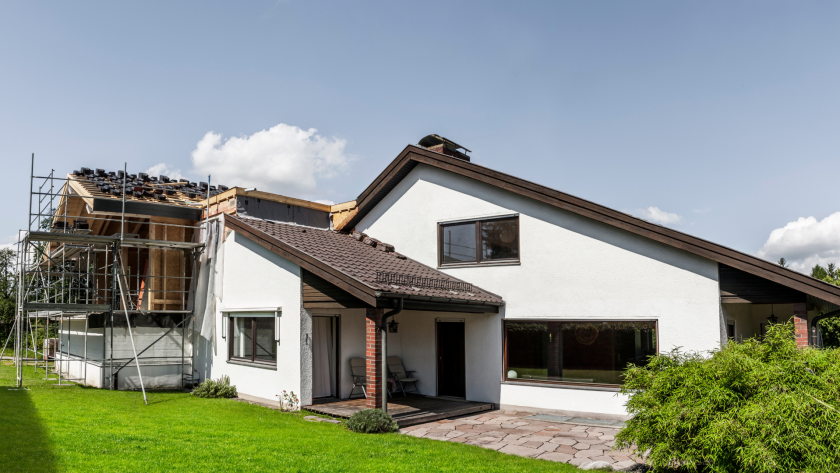What is the best way to spruce up your home? By adding value, important and valuable home additions, of course! Find out in this blog post what the most common types of home additions are and the benefits they can have for you.
Why Go for Home Extensions
There are a number of benefits to having a home extension, including:
Increased Living Space
A home extension can increase the size of your house by adding extra rooms or roof space. This can make your home more comfortable and functional, giving you more room to relax or entertain guests.
Increased Security
By increasing the size of your home, you can also increase its security. You will be making it harder for criminals to gain access undetected.
Reduced Energy Bills
Home extensions often involve adding on additional walls and ceilings, which can save you money on your energy bill, thanks to increased insulation and reduced cooling requirements in the summer months.
Improved Indoor Air Quality
By increasing the size of your home’s ventilation systems, you can improve the quality of air inside your home, reducing the risk of asthma and other respiratory problems.
Greater Flexibility and Comfort in Daily Life
Having more room within your house means that you can rearrange furniture and possessions as you see fit, making everyday tasks easier and more comfortable.
Increased Mobility
A home extension can often provide more space for storage, making it easier for you to move around your home without taking everything with you.
Reduced Stress Levels
Having more space within your home can reduce the amount of stress you experience, freeing up more energy to focus on other things in your life.
Improved Mental Health
Having more space within your home can also improve your mental health, making it easier to relax and enjoy your day-to-day activities.
Greater Flexibility in Lifestyle Choices
A home extension can often provide more space for hobbies or interests outside work and family life, making exploring new activities and interests easier.
Types of Home Extensions
There are many different types of home extensions, so it’s essential to choose the right one for your needs. Some common extensions include:
- Addition: This is the most common type of home extension and refers to adding on to your existing home. You can add an extra room, a porch, or a full basement. Additions are usually a way to add more space to the current property, without having to buy a new house.
- Remodeling: Sometimes, you may need to remodel your entire home with the help of experts to accommodate a new extension or to add more beauty and value to the existing property. This might involve demolishing a part of the house and replacing it with a new section, adding an entirely new structure, or just changing a few aspects like color, lights, and furniture of the house. But how to pick a home remodeling company for this task? One way to go about this is to look at a firm’s portfolio and client testimonials. These can testify to their quality of work and customer service.
- Interior Design: Another common type of extension is interior design. This might involve adding extra space to your home for storage, creating additional living spaces, or upgrading your bathroom. Hiring an interior designer (Helen Coulston, for example) for this kind of work is a wise decision on the part of homeowners given that not everybody has an understanding of what elements to include while making a property more functional and aesthetically appealing.
- New Construction: If you want to add to your home completely from scratch, this is the option for you. This can involve constructing a new home on a different site or building an addition to an existing home. This can be a little expensive depending on the type of new construction. Home builders are the ones to seek help from in this case.
Choosing the right type of extension for your needs is essential, as each has its own benefits and drawbacks. If you’re unsure which type of extension is right for you, speak to a home builder or an interior designer.
Risks of Home Extensions
There are a few risks associated with home extensions, but in most cases, they are relatively minor. Before you decide to have an extension built, it is crucial to weigh the benefits against the risks. Here are some of the main risks:
- Structural Failure: The biggest risk with home extensions is structural failure. If the extension is not constructed correctly or has an issue with the framing, it could collapse, potentially injuring or killing anyone inside.
- Roofing and Insulation Issues: Another potential problem with home extensions is that they can cause problems with your roofing and insulation. If the extension is too big, you might be in need of corrugated roof sheets for extra cover and protection; or if there are faulty connections between the roofing and insulation, the heat might escape from your house and create problems elsewhere in your building.
- HVAC System Incompatibility: Home extensions can sometimes cause compatibility issues with your HVAC system. If the new walls or roof obstructs ductwork or airflow, your heating and cooling systems may not work as well as they should. To get to the root of the issue, however, you would need to get in touch with a professional from a site similar to reggiesoil.com. Experts can take a close look at the problem and offer you a solution conducive to your funds.
If you’re thinking about adding some extra living space to your home, you’ll definitely want to consider adding some home extensions. Not only will they give you the extra space you need, but they can also improve your property’s overall look and feel, making it more desirable for potential buyers. If this is something that interests you, be sure to plan things properly with your trusted designer.




